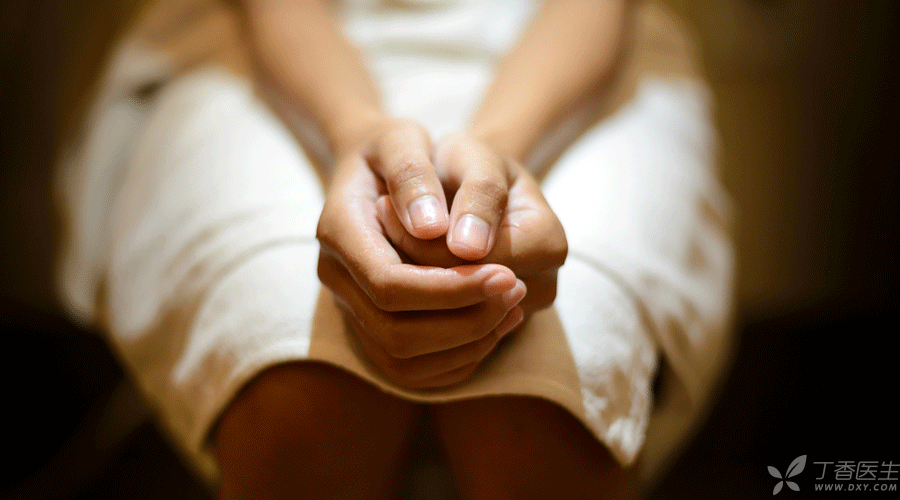
Postpartum urination can be said to be the first snag after delivery. 4 ~ 6 hours after normal delivery, 4 ~ 6 hours after cesarean section pulling out the catheter, parturient must have urine.
The conscientious nurses in obstetrics will take pens and small notebooks and take pains to ask their mothers if they have urinated, how many times they have urinated and how much they urinate each time.
I can’t urinate at all. I only urinate a little at a time and keep trying to urinate, which indicates that the bladder function has not completely recovered.
It is not uncommon that one cannot urinate.
In the late pregnancy, the bladder is pulled and compressed by the uterus, the tension of smooth muscle decreases, and the elasticity will temporarily decrease, causing dysuria.
Compression and pulling in the production process will also cause temporary congestion and edema of bladder and urethra, and even nerve paralysis, weakening or disappearing urination reflex, which will also lead to dysuria.
For mothers undergoing cesarean section, due to the effect of anesthesia, the bladder will once lose nerve control, and after the operation, there will be a state of lax paralysis and slacking.
In addition, childbirth is really a physical activity. This series of reasons may cause mothers to have difficulty urinating after childbirth.
Therefore, the first major event after giving birth to a baby is to restart the urination function of the bladder to avoid postpartum urinary retention.
Experience of smooth urination after delivery
1. Try to create a safe and comfortable urination environment for yourself.
If it is a single room or a family delivery room, it is best. Let the family avoid it for a while. You know, even relatives may not be able to urinate if there are several pairs of eyes staring at you at the same time.
Public hospital’s postpartum ward may be many people, can use the urinary basin on the bed. First let the people around try to avoid, and can use the curtain around the hospital bed to cover themselves. If there is no such curtain, you can cover your lower body and urinary basin with sheets. Close your eyes, calm down, relax as much as possible, and most of them can urinate smoothly.
2. Press your stomach, purse your buttocks and cover your hot towel.
For adults who bid farewell to [bedwetting] for more than N years, urinating in bed is by no means an easy thing to do.
If you can’t pee in bed anyway, try to go to the bathroom to pee. If you need to hold your stomach down with your hand to pee, or you need to pout your buttocks to pee, that’s okay. Don’t be afraid. This is temporary. No one will hold his stomach down with his hand or raise his buttocks to pee all his life.
If not, try applying a warm towel to your stomach to see if it can relax and excrete urine.
Here is a warm tip:
No matter natural delivery or cesarean section, the first time the parturient gets out of bed, someone should help him. Don’t try to be brave, and don’t think you can jump up as vigorously as usual. You must move slowly and step by step.
Don’t get up immediately after waking up, lie in bed for a few minutes first.
After that, please ask your family or nursing staff to shake the head of the bed high, or raise two pillows, and sit on the back of the bed for a few minutes to make sure there are no abnormalities such as dizziness, palpitation and blackness before trying to get out of bed.
After getting out of bed, don’t rush to walk, hold the railing for a while, then walk slowly.
Doing this [three steps] well can avoid postpartum syncope to the greatest extent and reduce the occurrence of accidents such as postpartum falls and fractures.
3. Various ways to induce urination
Turn on the faucet and pour two glasses of water into each other, thus creating underwater sound and making full use of the scientific principle of conditioned reflex to help urinate.
I have also seen my mother ask my husband to whistle. My husband also didn’t expect that besides being naughty when he was a child, being cool on the court when he grew up and flirting with girls on the street, his whistling skill now has the function of catheterization and pain treatment.
4. It’s really not possible. Report it to the doctor at once.
Don’t be brave, don’t wait needlessly, can’t urinate for a long time, remember to tell the doctor.
With the passage of time, the bladder may be damaged by the continuous production of urine, causing fiber breakage, nerve paralysis and tissue ischemia. The longer the delay, the more urine accumulates, and the bladder will be injured. Once entering the vicious circle, the subsequent treatment will be quite troublesome.

It’s hard to insert a catheter.
If you can’t urinate for more than 8 hours, you will suspect that it is urinary retention.
At this time, the doctor will take the way of catheterization to help the mother.
Urine catheter, urine out, bladder relaxed immediately.
However, the taste of inserting a catheter is not pleasant. It is a feeling of stimulation, acid swelling and spasm-suddenly I lost control of my bladder and suddenly I can’t hold my urine. I feel very uncomfortable. After intubation, I will especially want to urinate and be afraid of urinating my pants, but in fact you can’t urinate completely.
Why do I know so well? Because I had catheterized myself during a caesarean section. As an obstetrician and gynecologist, preoperative catheterization is a common preoperative routine. But when the catheterization was actually inserted into me, I realized that I had never really cared about the feelings of those pregnant women.
Those who have not been inserted with a catheter are not enough to claim to have experienced life. Obstetricians and gynecologists who have not been inserted with catheters are not enough to claim that they can personally experience the sufferings of women.
Since then, in the face of the lying-in woman who can’t urinate after giving birth, I have been encouraging, trying to find ways and waiting patiently. Every time I give a doctor’s advice to insert a catheter, I will think about it from left to right. Is she really unable to urinate? Is this really necessary?
The great Plato said:
To be a real doctor, one must experience all the diseases he wishes to treat and encounter all kinds of accidents and situations he will diagnose.
After I gave birth to my own child, I think I understand the mothers in the delivery room better.
